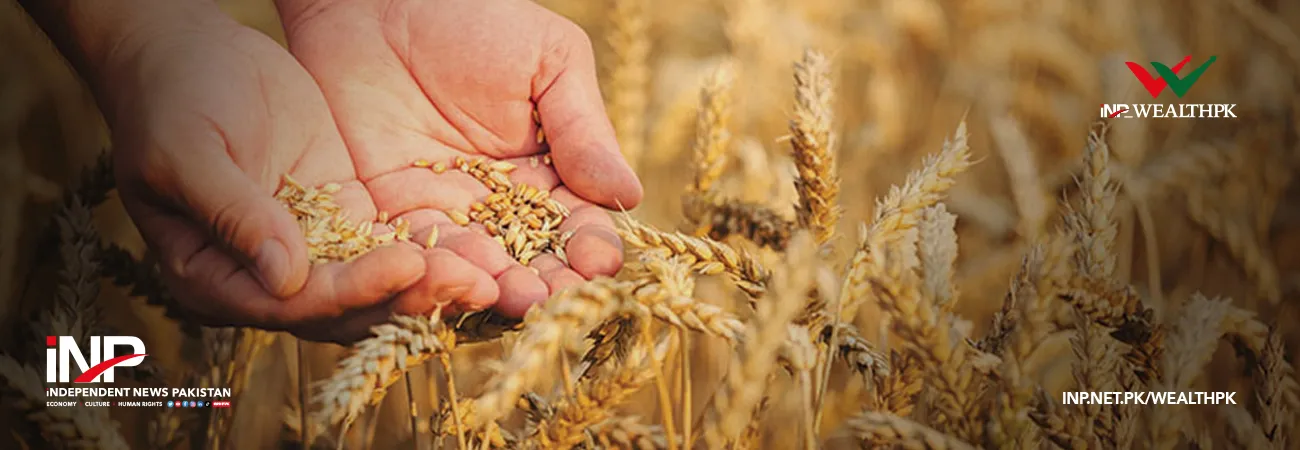INP-WealthPk
Arooj Zulfiqar
China’s success in developing hybrid wheat varieties that can tolerate saline conditions could greatly benefit Pakistan, as it would boost the production of this essential crop. “Adopting hybrid wheat is the solution to averting food shortages in Pakistan. Wheat is the staple food in Pakistan, and its production plays a significant role in the country's economy. However, in recent years, wheat production has been facing a decline, which could lead to food insecurity in the near future,” said Dr Sikandar Khan, a principle scientific officer at National Agriculture Research Centre (NARC). “China, a pioneer in agricultural innovation, has successfully developed hybrid wheat varieties that yield more, resist environmental stresses, and have more nutrition. These breakthroughs have garnered global attention, particularly from countries facing similar challenges in sustaining and increasing their agricultural output,” he said. “Recognising the potential benefits of such advancements, Pakistan has taken a keen interest in collaborating with China to integrate these technologies into its agricultural practices. The collaboration aims not only to boost wheat production but also to strengthen the overall agricultural sector, thereby contributing to food security and economic development in Pakistan,” he pointed out. Sikandar said: “Selection and breeding of hybrid wheat varieties suitable for the local environment requires the cooperation of China and Pakistan.”
“One of the key aspects of China's hybrid wheat success is the utilisation of advanced breeding techniques and genetic engineering, leading to crops with heightened resistance to diseases and pests, improved tolerance to adverse weather conditions, and increased nutrient content. These attributes make the hybrid wheat varieties not only high-yielding but also environmentally sustainable, aligning with global efforts towards sustainable agriculture.” According to WealthPk research, Chinese hybrid wheat demonstration fields, covering an expansive area of approximately 3,000-5,000 hectares, have demonstrated exceptional performance in crucial wheat-producing regions throughout Pakistan. At the 2023 International Symposium of Silk Road Wheat Innovation Alliance held in China, Professor Zahid Akram from Pir Mehr Ali Shah Arid Agriculture University, Rawalpindi, pointed out that approximately 80% of Pakistan's farming community is engaged in cultivating wheat, covering almost 40% of the country's agricultural land. Akram, who is also the vice-chairman of the first council of the Silk Road Wheat Innovation Alliance, expressed his confidence in the potential collaboration between China and Pakistan in enhancing wheat production. He looked forward to engaging with member nations of the Silk Road Wheat Innovation Alliance.
Credit: INP-WealthPk













